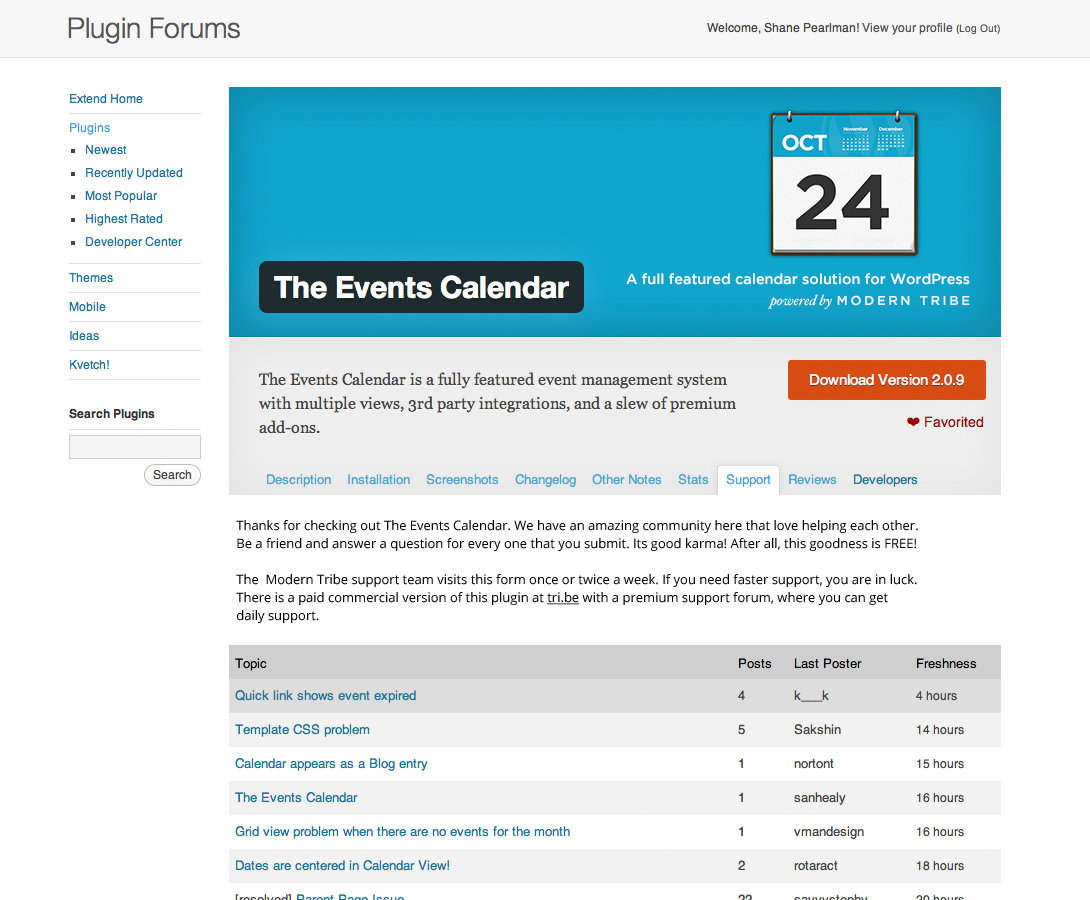Setting support expectations at WordPress.org: one possible solution

The WordPress.org plugin repo is an awesome place. Users are friendly and thankful, discussions are easily tracked, and the ever-growing list of administrative features is making it easier to measure our relationship with the community. We want to extend our sincere thanks to Otto, Scott Reilly & the rest of the dot-org contributors for some of the new additions they’ve been adding recently. The standalone “Reviews” section is huge (we also appreciate the ability to respond to reviews), and we’re looking forward to following the discussion at make/meta over the coming months to see what else is in store.
But, as we grow and our user base does the same, we’ve struggled with setting support expectations on the WordPress.org forum for users who’ve never asked for help before. After some discussion last week, we came up with one solution that would work well for us: a simple text area where plugin devs can enter a “support expectations statement” that appears directly above the first page of forum results on WordPress.org. Here’s how we envision it:

Last night, The Events Calendar received it’s 300,000th download. This was a significant milestone for us at Modern Tribe and finally gave us an opportunity to break out the champagne. But 300,000 users also gave us pause. With this many potential support inquiries, how can we be helpful while setting boundaries? How can we make it clear that while we appreciate and value our core userbase, the bulk of our support resources are routed to paying customers? And how can we draw the line between what we’re really looking for when browsing the dot-org forums — namely, bug reports so we can improve the plugin — and those requests (custom queries, new page templates, etc) that we really only have bandwidth to address when the user has paid for PRO? We feel the support expectations statement proposed above could help with all of these.
For those who aren’t familiar with our support process, we generally break it down like so:
- For free/non-paying users, we hit the WordPress.org support forum for The Events Calendar about once a week. We’re watching for bugs exclusively, but will point users in the right direction if they ask a simple question.
- For PRO/paying users, we monitor the forums here on Modern Tribe’s website daily to ensure nothing goes more than 24-48 hours without a response. Beyond just bugs, we also help with customizations and other more in-depth, time consuming tweaks.
The problem we encounter is that if we aren’t hitting dot-org frequently enough, we start to see negative star ratings, “Broken” votes and angry threads from users saying we don’t respond…usually on issues that are outside the scope of what we could support for non-paying users to begin with. When we hit it more than once a week or try to help everyone, users begin to expect “going the extra mile” as the status quo and you’ve set the bar too high. (To say nothing of the toll this takes on our support budget). In some ways, we’ve found you can do more damage by being too responsive than being not responsive enough.
This brings us back to the mockup above. See the two paragraph blurb between the header navigation and the first thread? This isn’t rocket science: it’s simple, unobtrusive, and most importantly gives the plugin devs a way to take ownership of this page. It shows somebody is in charge here, laying down the law, and that this isn’t a wild west free-for-all. Our statement for The Events Calendar would probably be quite close to what we’ve got in the mockup above, though I’d also add a personal touch (who from the team monitors this forum?) and state specifically what we can and cannot do during our weekly rounds.
For us, a support expectations statement would go a long way towards getting off on the right foot with new users and would cut down on some of the challenges we’ve faced in balancing support for our premium users versus the core product. And given how basic it could be, this probably wouldn’t be a challenge for the dot-org team to add if there was enough demand for it.
There are plenty of other companies out there in this same boat who have to strike a similar balance. If you’re a plugin or theme dev, we’d love to hear from you: where do you draw the line when it comes to the dot-org forum? Would an “expectations statement” be of value to your team? Let us know on Twitter or in the comments below.